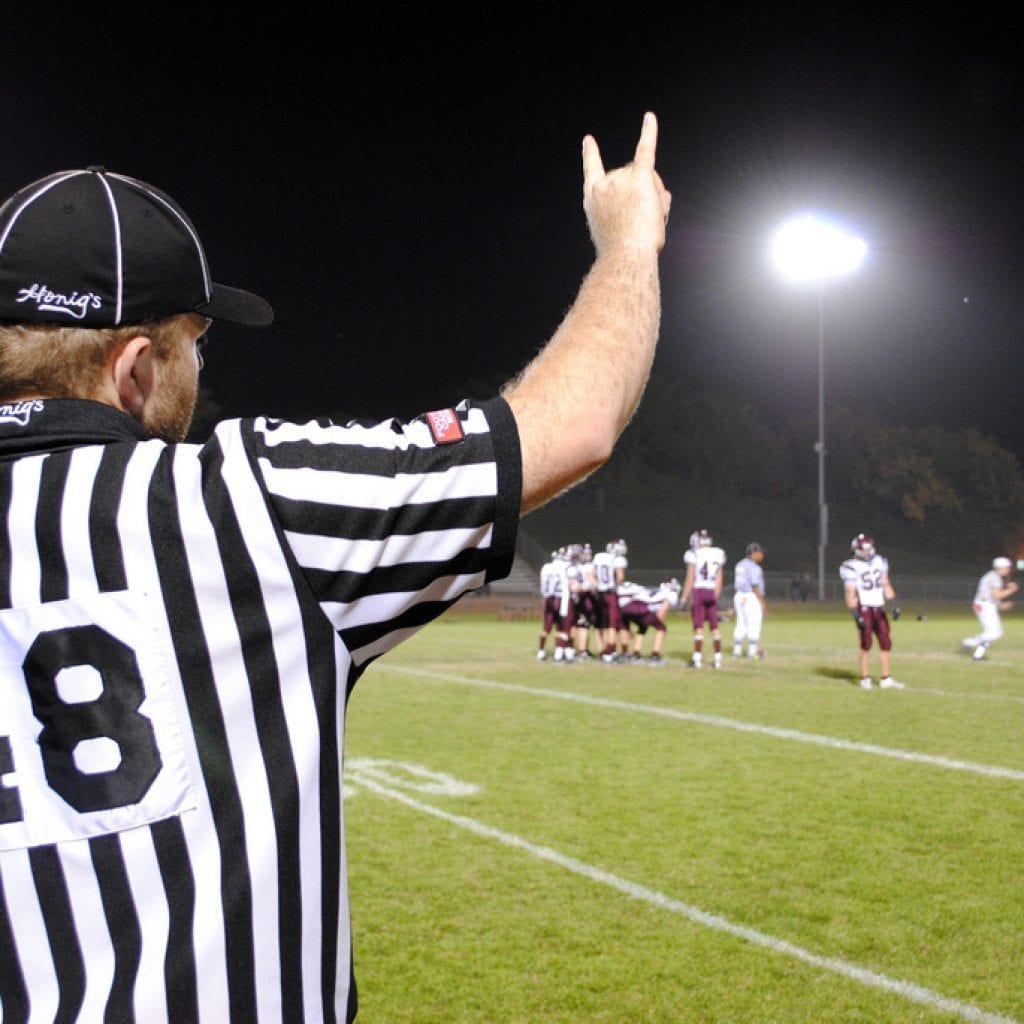Why do refs make bad calls? They’re wrong more than they’re right. It’s awful. — G. H., Milpitas
So let’s start with the obvious on why do refs make bad calls?
1) The players are in high school
2) The coaches are working at a high school
3) The parents go to high school games.
So what would make anyone think that the officials should perform any better than high school-level players or coaches?
OK, 1 percent of the players (or less) will go on to success at the next level, but 99 percent of them will stop playing after high school because — wait for it — they’re not that good.
Very few coaches move from high school to college.
Some could, but choose not to, but for most, high school is as high as they’ll go because — wait for it — they’re not that good.
Now, does that mean players don’t work hard, don’t have skills and don’t compete? Of course not.
Does that mean high school coaches are idiots who couldn’t organize a two-car parade and can’t tell the difference between a 2-3 and a 3-2 zone? Of course not.
But it’s a huge jump from high school to college, just as it’s a huge jump from college to pro, and high school refs are no better and no worse, relatively speaking, than the players and coaches they officiate for.
Oh, and by the way, ask college fans about college officials (better than high school refs), and what will the answer be? “They’re terrible.”
Check with Warriors fans about NBA officiating. “It’s awful.”
High School Officials
High school officials work hard for their skimpy paychecks. They go to preseason meetings, they take rules tests, they are evaluated and instructed, and then they go out — just like players and coaches — and do the best they can.
Sometimes their best (that night) isn’t very good; sometimes players miss shots and make dumb turnovers. Other times, coaches have the wrong kids in the game playing the wrong defense.
Here are some other reasons officiating isn’t as good as it could be: Know-nothing fans, emotional players and coaches who have never read a rule book (and there are many) heap abuse on officials that is almost always undeserved.
Refs Make Bad Calls
Sure, refs make bad calls, but if an official hustles to get in position, has a good look at the play and blows the whistle, his or her judgment on the play is a thousand times more likely to be accurate than the coach at the other end of the floor or the loud-mouthed parent in the top row of the bleachers.
And after a while, this constant barrage of negativity wears refs down, and they finally just give up. Or, to put it another way, the available talent pool of officials is shallower than it needs to be thanks to the unwarranted criticism that refs must endure — even when they make the right call in pressure situations.
So here’s step one to make officiating better: Grab a whistle and go do some games yourself. “Oh,” you say, “I’d never do that. It’s too hard.” OK, then do everyone a favor, in the stands and on the court, and keep it to yourself when you think a bad call is made. If you’re not willing to take the heat yourself, then how is it fair for you to dish it out?
If you think you can do the job, then sign up. The more good officials, the better for everyone, right? Of course no one would ever, ever call you a terrible ref.
[bsa_pro_ad_space id=21]

